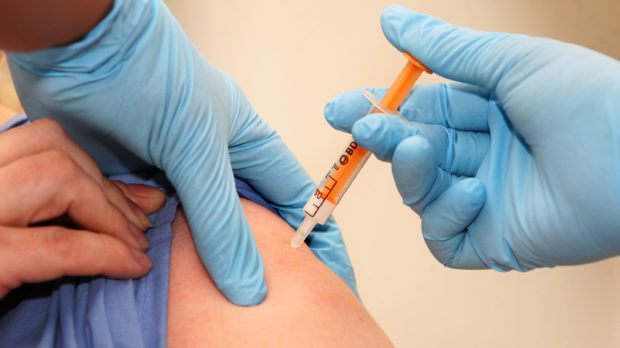Almost 300 patients in Shetland – most of them children – have been left not knowing whether they are protected from serious disease after it emerged vaccines were stored in fridges at the wrong temperature.
Highlands and Islands MSP Jamie Halco-Johnston last night questioned how it took health chiefs six months to discover the “hugely concerning error”.
A routine check at Lerwick Health Centre last month discovered a range of vaccines had been kept above the recommended 2-6C maximum temperature since August 1.
NHS Shetland yesterday apologised and attempted to reassure patients, stating the vaccines provided will not cause any harm, but the immunity required may be compromised.
They said all patients affected – 171 children and teenagers, as well as 91 adults – were now being offered booster revaccinations.
The vaccines involved prevent the potentially serious diseases of tetanus, diphtheria, polio, whooping cough, haemophilus influenzae B, hepatitis B, pneumococcal disease, meningococcal disease, measles, mumps, rubella and rotavirus infections.
Others include the shingles vaccine for older people and some travel vaccines. The flu vaccine was not affected.
Despite the apology, Conservative list MSP Jamie Halcro Johnston MSP said: “This is hugely concerning news that so many patients across NHS Shetland have been affected by this error, which surely could have been avoided.
“The fact that it took six months to discover that these vaccinations were being stored above the maximum temperature is also alarming.
“NHS Shetland need to carry out a thorough investigation as to why this has occurred and give a complete guarantee to patients that this absolutely will not happen again.”
Isles’ MSP Tavish Scott said he was “deeply concerned”, adding: “Fortunately, on this occasion, no harm appears to have come to those involved. It is imperative that the investigation under way is concluded swiftly and new measures to prevent a similar incident are implemented.”
An NHS Shetland spokesman said: “It is intended to complete the majority of revaccinations within the next four weeks.
“NHS Shetland apologises to those affected for the inconvenience and any concern or distress caused to patients, parents and their children because of the failure.
“While the vaccines do not cause any harm if given to patients, they may not provide the level of immunity required to protect patients from infection in the long term.
Simon Boker-Ingram, director of community health and social care, added: “I am very sorry that this situation has arisen, and particularly for affected patients and parents.
“Whilst we have systems in place to prevent such events it is clear that on this occasion these did not work as intended. We are thoroughly investigating this so that we can minimise the risk of this happening again.
“Our priority is to move quickly to offer re-vaccination to those affected, and I am grateful to our staff who have reacted with speed to this situation, with our first revaccination clinic happening on Saturday”.
He said action had already been taken to ensure the fridge temperatures at the health centre were now being appropriately monitored, adding that any lessons learned in the investigation would be applied throughout Shetland to ensure it does not happen again.
Susan Webb, director of public health (for NHS Shetland and NHS Grampian), said: “Our concern is that the effectiveness of the vaccines may have been compromised so they may not provide the necessary long term protection that was intended.”
Vaccines affected
- tetanus
- diphtheria
- polio
- whooping cough
- haemophilus influenzae B
- hepatitis B
- pneumococcal disease
- meningococcal disease
- measles
- mumps
- rubella
- rotavirus
- shingles
- some travel vaccines
